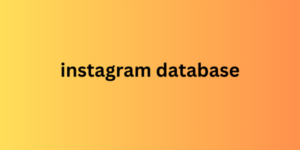But concretely, what conclusions can we draw from the first results of AI Overview? Where are the majority of problems? And what lessons can you learn for your optimization once Google's tool is fully operational? Let's take stock.
A person's hands typing on a laptop keyboard, with graphics and icons representing artificial intelligence (AI) and machine learning overlaid. The image illustrates the integration of AI into computing processes.
AI Overview: an update on what was announced
By wanting to integrate generative artificial intelligence directly into its search engine, Google's promise is beautiful. No more long successions of links without an immediate answer for users, make way for "AI Overviews" or "AI insights" in French. Do you want to ask Google a complex question and get a clear, complete and personalized answer in the blink of an eye? This is exactly what this new search experience promises.
Among the features expected for online information search, we can notably cite:
tailored responses , with adjustment of details according to needs;
more advanced reasoning thanks to the Gemini model, which should allow artificial intelligence to manage complex queries;
a new organization of results , for example by grouping content under automatically generated titles;
the arrival of visual search , which should, among other things, allow you to ask questions to Google using videos as support.
As one might expect, all these new announced capabilities have not left SEO professionals unmoved , who have seen in the arrival of Google SGE / AI Overview a new era of natural referencing .
So, does reality live up to expectations? Available to all users in instagram database the United States for a few weeks, you will see that AI Overview is far from unanimous.

Webinar
How to integrate AI into your marketing campaigns?
Watch the webinar!
AI Overview Launch: Complicated First Feedback
Despite nearly a year of testing Google SGE through Google Labs, the rollout of its near-final version in the United States is not the most promising. Indeed, major difficulties seem to have emerged as users have pointed out the many erroneous answers from AI Overview.
Generated responses of questionable reliability
One of the first issues raised in the case of AI Overview concerns the errors made by artificial intelligence. If we had already had the opportunity to observe many approximations and inaccuracies through models such as ChatGPT , Gemini, etc., the trend was confirmed during the deployment of AI Overview.
Many users have discovered wrong answers to seemingly simple queries, such as the number of slaveholders among the signatories of the United States Declaration of Independence. While AI Overview tells users one third of the signatories, historical data and sources tell them three quarters of the signatories. You will agree that the difference is not insignificant. But why such a difference? The answer is simple: Google's AI did not take into account the contradictory sources . It focused on only one version of the story.
And that’s not all! Sometimes AI Overview can completely miss a question . Want to ask it how to barbecue beef? It gives you advice on pork or chicken. And let’s not even talk about math, since Google’s AI announces that there are 738,523 days between October 14, 2024 and January 12, 2025. That’s a lot, right?
Misunderstanding the nuances
Another problem that AI Overview users quickly noticed: the tool often returns completely wacky results. It seems that Google's artificial intelligence has a hard time understanding the nuances of language. For example, it can't tell the difference between a reliable source and a sarcastic comment from an Internet user on a platform like Reddit, which leads to sometimes hilarious, even disturbing results. This was notably the case when an Internet user asked for a solution to stop the cheese from leaking from his pizza. In all seriousness, the AI suggested he add glue to the sauce.
On a different note, the same user noticed that if he asked Google “how many stones should I eat,” AI Overview told him to consider eating at least one small stone per day. Why? Simply because they contain minerals and vitamins that are very beneficial for health. Why not, after all.
